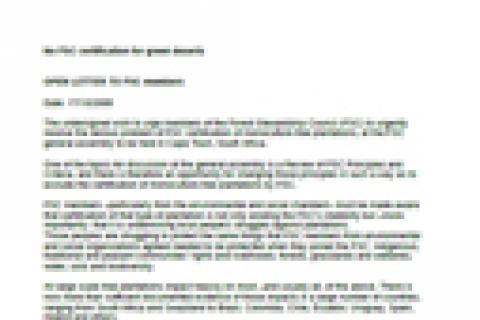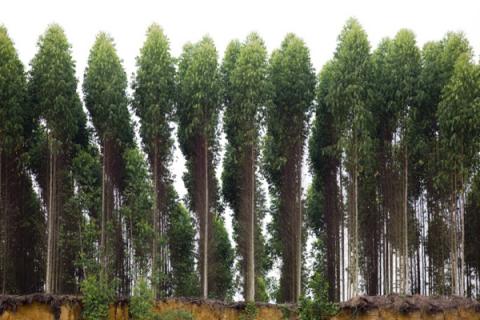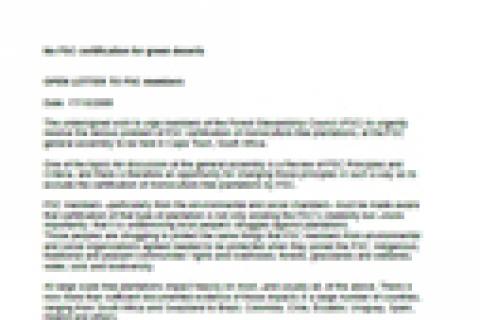Indonesia is one of the world’s most populous and rural countries, with a total population of 220 million people.
Other information
Malaysia, together with Indonesia, is the world's leading producer of crude palm oil for export, at a high cost, though. According to a 2005 Friends of the Earth report, 87 per cent of recent deforestation in the country has occurred to make way for palm-oil plantations. Since Malaysian rainforests are some of the most diverse ecosystems on the planet, clearing these areas poses serious threat to countless species of plants and animals.
At its last Conference of the Parties (COP8), the Convention on Biological Diversity adopted a very important Decision in relation to the issue of genetically modified trees and invited everyone “to provide relevant views and information to the Secretariat for inclusion in this assessment”.
In our previous issue (WRM Bulletin Nº 110), we published a section on “plantation certification at its worse”, including the case of the Pan European Forest Certification Scheme (PEFC), a programme for the endorsement of national certification schemes.
I recently had the opportunity of travelling to the Indian province of West Bengal and to visit the Dhoteria, Bagora and Mayung “Forest Villages” in the districts of Darjeeling, Kurseong and Kalimpong.
To the outsider, the mountain area of the Outer Himalayas appears to be covered by dense forests, mostly composed of very large trees. However, local people know that these are not forests, but old and new plantations of mostly two species: the Japanese cedar (Cryptomeria japonica) and Teak (Tectona grandis).
Later this year, United Fiber Systems plans to open a new 700,000 tonnes a year wood chip mill at Alle-Alle on the island of Pulau Laut. The mill is the first step of UFS’ proposed pulp developments for Kalimantan. The wood chips will be exported to feed pulp and paper mills in China.
The International Union of Forest Research Organizations (IUFRO) conference “Forest Plantations Meeting: Sustainable Forest Management with Fast Growing Plantations” 10-13 October, 2006 encountered heavy opposition by several environmental and ecological justice groups.
The Sustainable Forestry Initiative - launched in 1995 by the American Forest & Paper Association (AF&PA), the most powerful timber trade association in the world - covers an area over 40,485,830 ha in the United States and Canada. It is, in essence, a certification scheme by the forestry industry for the forestry industry. AF&PA member companies, including the largest loggers in the United States and Canada and the largest wholesale distributors of global wood products, account for 82% of the funds of SFI.
For some months now, declarations have been circulating in Southern Brazil and in Uruguay, both by members of the Swedish-Finnish company Stora Enso and by Government authorities of these countries regarding the advantages for the local population of the installation of the company’s pulp mills in the region.
Establishment of monocultures of fast-growing trees to produce so-called fast-wood has accelerated in Cambodia following the country’s transition to a market-oriented economy in the early 1990s. Proposed and established plantations under the development paradigm of ‘economic concessions’ include fast-woods acacia, pine and eucalyptus. The majority of these economic concessions violates Cambodian law and there is little evidence that they create the proposed benefits and income for the state.



